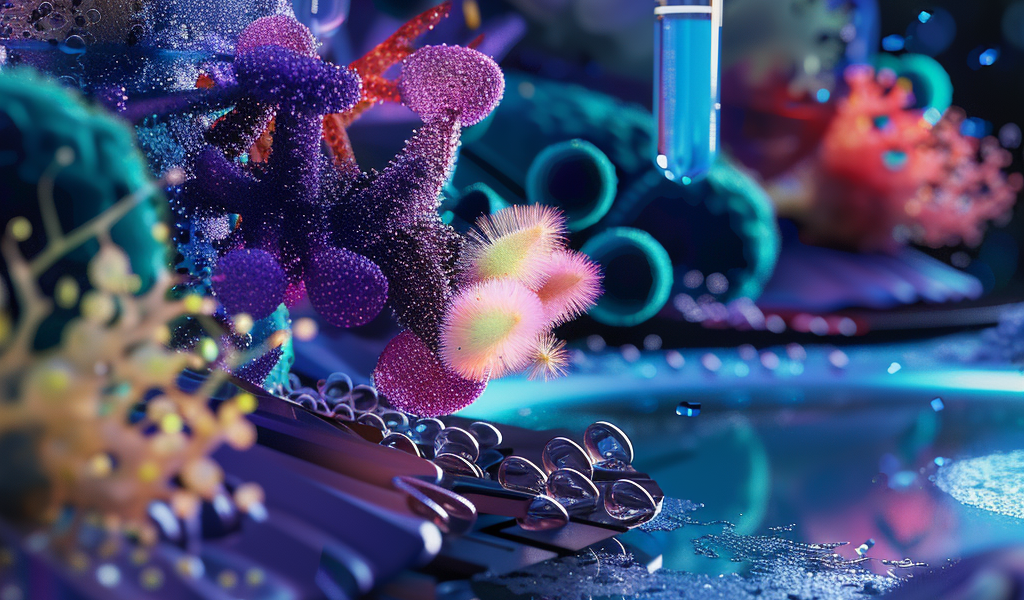Chronic stress has been identified as a significant factor in the accelerated spread of colorectal cancer, according to a groundbreaking study conducted in China. This research, which will be presented at the upcoming UEG Week 2024 in Vienna, highlights the detrimental effects of chronic stress on gut microbiota, the complex ecosystem of bacteria within the digestive system.
The study reveals that chronic stress not only promotes tumor growth but also disrupts the balance of beneficial gut bacteria, particularly the Lactobacillus genus. These bacteria are essential for a robust immune response against cancer. The findings underscore the intricate relationship between mental health and cancer progression, suggesting that stress management could play a vital role in cancer treatment and prevention.
In the experiment, researchers injected an antibiotic cocktail into two distinct groups of mice: one that was subjected to chronic stress and another that was not. This procedure was designed to eliminate healthy gut bacteria. The results were telling; both groups exhibited a weakened immune response against cancer, demonstrating the critical role that gut bacteria play in maintaining health.
Approximately 11 weeks post-injection, tumors were detected in the intestines of all mice involved in the study. Following the confirmation of tumor presence, the mice were euthanized, and researchers employed specialized chemical dyes to analyze the tumor characteristics. Dr. Qing Li, the lead investigator and a postdoctoral researcher at West China Hospital of Sichuan University, explained the methodology behind inducing chronic stress in the mice.
The chronic restraint stress model, commonly used in scientific research, involved subjecting the mice to a stressful environment for six hours each day until the conclusion of the experiment. This model mimics real-life stressors such as overcrowding and frustration. The research team then explored how the presence of beneficial gut bacteria influences immune cells that protect against tumor growth and disease spread.
In an innovative approach, the researchers transplanted healthy gut bacteria into the chronically stressed mice. The outcome was promising; the mice that received the beneficial bacteria exhibited reduced tumor formation. This finding suggests that restoring gut microbiota could be a potential strategy for cancer treatment, particularly for patients experiencing chronic stress.
The implications of this research extend beyond the laboratory. It points to the need for integrated treatment approaches that consider both physical and psychological health in cancer patients. By combining traditional anti-tumor medications with strategies to enhance gut health, there is potential for improved outcomes for those battling cancer.
As the understanding of gut microbiota’s role in health continues to evolve, this study adds to the growing body of evidence linking mental health and physical health. The researchers emphasize that managing chronic stress could be a crucial aspect of cancer care, paving the way for new therapeutic approaches that prioritize both mental well-being and physical health.
In related health news, the rise in colonoscopies among younger populations has been noted, signaling a shift in cancer screening practices. The increased awareness surrounding colorectal cancer risks, particularly among younger individuals, highlights the importance of early detection and intervention.
Additionally, recent studies have suggested that multiple sclerosis may increase the risk of certain cancers, further complicating the landscape of cancer research and patient care. As researchers continue to uncover the intricate connections between various health conditions, the need for comprehensive treatment strategies becomes increasingly evident.
With the promising results from this study on chronic stress and colorectal cancer, there is hope for developing new methods of treatment that could significantly impact patient outcomes. As the medical community gathers at UEG Week 2024, the focus will be on sharing insights and advancements in gastroenterology that could lead to better management and understanding of gastrointestinal diseases.
In conclusion, the intersection of mental health, gut microbiota, and cancer progression is a burgeoning field of research that holds promise for future therapeutic developments. As studies like this one shed light on the complexities of cancer biology, the potential for innovative treatment strategies continues to grow.





